What will Rishi Sunak’s rise to power mean for relations between India and the UK?
When Rishi Sunak became the first person of Indian origin to enter No 10 as the UK’s prime minister, it was a moment celebrated by many across the South Asian country that only a few months ago marked 75 years since the end of British colonial rule.
That the news Britain would be getting its first Hindu leader arrived on Diwali, the most important festival in the Hindu calendar, made the symbolic significance even harder to miss, and there are many who have expressed the hope that Mr Sunak will usher in a new era of close relations between the two countries.
At a diplomatic level, both India and the UK often like to talk of the so-called “living bridge” between their two countries – Britain’s huge diaspora and South Asian-origin community, of which Mr Sunak is now the leading example.
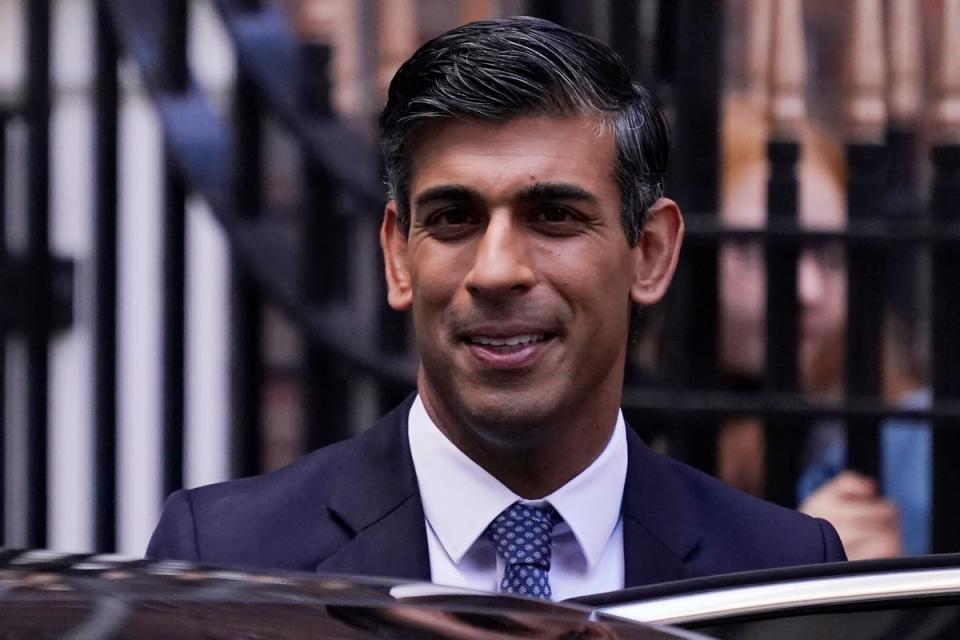
There was a nod to this on the day of Mr Sunak’s selection from India’s prime minister Narendra Modi, who tweeted his “special Diwali wishes to the ‘living bridge’ of UK Indians, as we transform our historic ties into a modern partnership”.
Now that the dust from the celebrations has settled, the question in India is whether that transformation will be accelerated by Mr Sunak – or whether the new prime minister will have his attention elsewhere.
After Boris Johnson and, albeit briefly, Liz Truss, Mr Sunak succeeds two British prime ministers who paid great lip service to the importance of the UK’s relationship with India, but who also failed to oversee the completion of a much sought-after free trade agreement (FTA) between the two countries by the deadline of Diwali.
“One of the main advantages that I see [for Mr Sunak] as compared with Liz Truss, is that he is somebody who is familiar with India and who has a connection with India,” said Navdeep Suri, a former Indian diplomat who served in London and is now a distinguished fellow at the Observer Research Foundation, an Indian think tank.
“To that extent, he does not have to go on a steep learning curve with regards to India. But beyond that, I firmly believe that foreign policy is based on the consideration of national interest and I don’t think a [single] person explicitly has that much of a role in these decisions,” he told The Independent.
Given how much importance has been placed on it in the context of expanding global trade after Brexit, the highly ambitious FTA with India is naturally the first and biggest challenge Mr Sunak faces when it comes to ties with India.
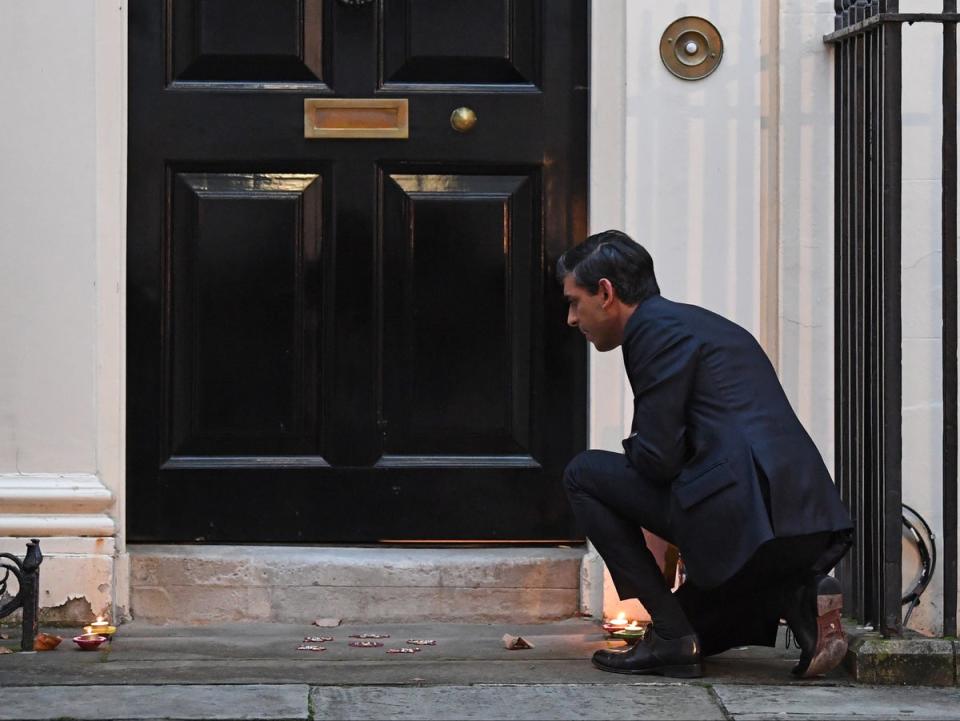
When negotiations for the deal began in January, the aim was to double trade between the two countries to £86bn by 2030. India hopes to increase exports of leather, jewellery, textiles and food products, with post-study work visas and emigration for Indians to the UK a big priority.
Britain, meanwhile, aims to double its total exports to India, up to as much as £28bn a year by 2035, thereby increasing wages across the UK by up to £3bn. The UK also wants an agreement that includes cutting tariffs on exports of British-made cars and Scotch whisky.
“For Britain, its current trade with India accounts for just about 1.7 per cent of total UK trade, with the trade balance being in India’s favour and with significant untapped potential,” says scholar Shairee Malhotra, Europe fellow at the Observer Research Foundation in Delhi.
“A report by the Confederation of British Industry mentions how an FTA with India will nearly double UK’s exports to India. This is particularly important for a nation battling an economic crisis with soaring inflation and pressure on its currency.”
According to media reports, although 16 chapters across 26 policy areas have been agreed to in the negotiations, no new deadline has been set to conclude the talks after the two sides missed the Diwali deadline.
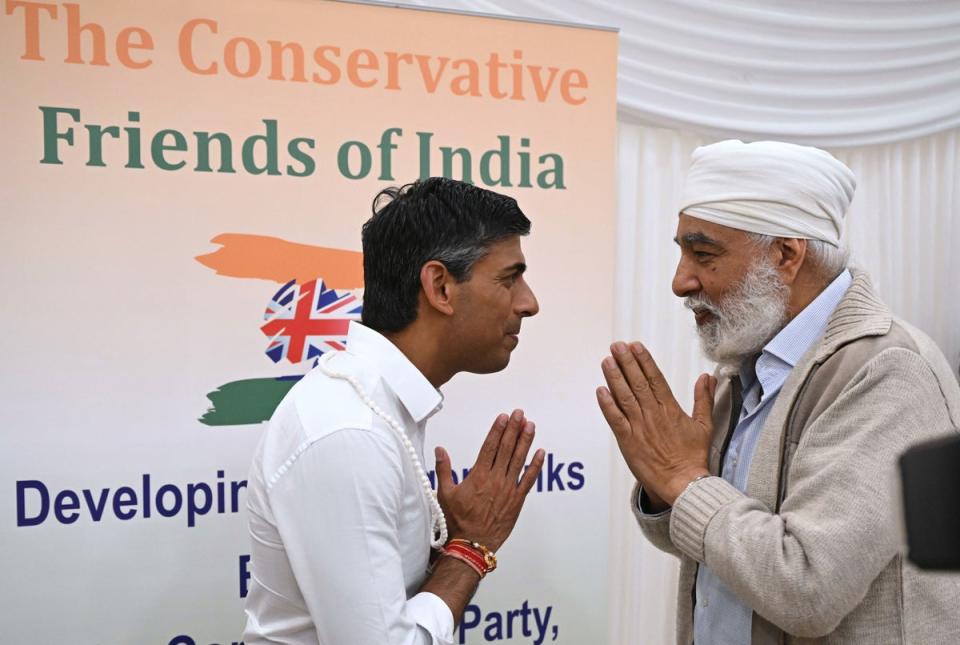
“We have already closed the majority of chapters and look forward to the next round of talks shortly,” trade department minister Greg Hands told the House of Commons.
“We are working towards the best deal for both sides and won’t sign until we have a deal that is fair, reciprocal and ultimately in the best interests of the British people and the UK economy.”
Both sides have downplayed the significance of the missed deadline, pressing upon a willingness to focus on quality over speed to ensure that the deal meets the interests of both countries.
Mr Sunak has already made clear how keen he is to make strides on that front. In his first call as prime minister to Mr Modi, he expressed his hopes for “good progress” on finalising the details of the trade deal.
Their call was swiftly followed by Mr Cleverly’s trip to India last week for a UN counterterrorism conference – making it his first destination abroad since being reappointed foreign secretary in the Sunak government.
That’s a point he emphasised in an interview with the Times of India, in which Mr Cleverly also said it was “lovely to see how much excitement and enthusiasm there is about the British PM here in India”.
During the visit, Mr Cleverly emphasised the importance of removing barriers to trade and making it “quicker, easier and more convenient” for investors and entrepreneurs to do international business in both directions.
For India, a trade deal with the UK is important because its “fiscal deficit is rising high, its trade deficit has shot through the roof and it wants to export more”, said Sushant Singh, a senior fellow at the Centre for Policy Research, another Delhi think tank.
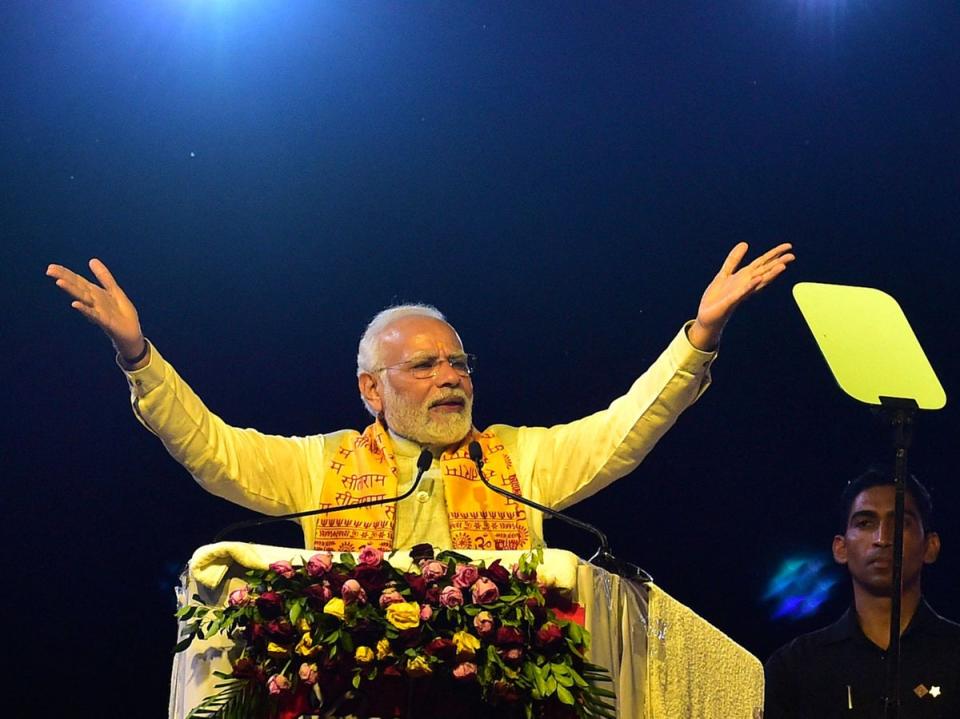
But reaching an FTA is a multi-agency process involving a number of departments of government, he explained. “And there are several issues that still remain unaddressed. From the Indian perspective, mobility is one of these issues.”
The migration of Indians to the UK is a major sticking point for the Conservative Party, with home secretary Suella Braverman remarking during the Truss administration that Indians are the “largest group of people who overstay” their visas in the UK.
Her comments were received with outrage in India and were put to Mr Cleverly during his visit as an example of the kind of viewpoint standing in the way of progress on a deal.
Her reinstatement to the post, six days after she resigned amid reports of several major security breaches, has been met with scepticism in the British parliament and in India. “I think it is not well received [in India], but to get the right wing of the Tory party behind him, he [Sunak] had to do it,” said Mr Singh.
“Whether it was a deal that was agreed upon or whether it was a nudge-nudge, wink-wink kind of affair, you don’t know. But the fact is she is [now] home secretary because she put her weight behind him, and she got the right wing of the party behind him. That political rationale is here.
“And [the fact that] political rationale takes priority over so-called ties with India, clearly tells you where Rishi Sunak’s loyalties lie.”
Ms Malhotra argued that, while a relaxation in immigration policy towards India might not play well domestically, such a move would work in the UK’s favour. “Britain is facing acute labour shortages in the wake of Brexit and an India-UK trade deal that includes a relaxation of the visa regime for Indian nationals could fill this vacuum,” she said.
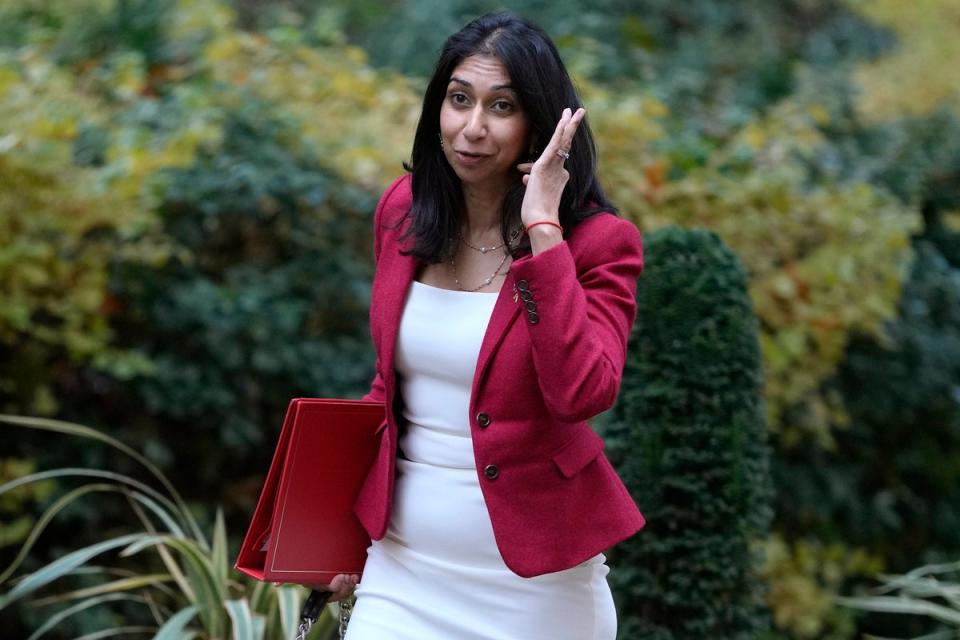
At stake are a whole range of important gains to be had from an India-UK trade deal, Ms Malhotra said. “The UK and India both have parallel quests of wanting to reduce their economic dependencies on China and diversifying supply chains.
“India visualises itself as a major power and, for post-Brexit Britain, India is a top priority. Thus, there is a bilateral need for greater security and economic cooperation to cement their positions in the evolving geopolitical order.
“Finalising an FTA with India would be a major accomplishment for the new British government, which is facing huge economic and political turmoil at home. But for that the British government will need to first ensure some form of political and economic stability domestically,” she said.
Ultimately, India needs to be “realistic” in its expectations about the UK given the host of challenges the new prime minister in London faces, including a fractured relationship with the European Union following Brexit and the ongoing war in Ukraine, for which the UK has pledged billions of pounds worth of arms support.
“These are the major priorities at this point in time and these are not going to change by virtue of the fact that the prime minister happens to be of Indian descent. We should be realistic about where India comes in that order,” said Mr Suri.
Besides immigration, the other question that has loomed large over India-UK relations under the past two prime ministers is that of Ukraine – for while India would welcome greater closeness with the UK on matters of intelligence and security, Britain and the wider western world are unhappy with India’s ongoing closeness to Russia.
For Mr Singh, Mr Sunak is arriving at a fortuitous time in the sense that this matter has been all but closed. “I think the West has already conceded that India is not going to break ties with Russia, and India’s relationship with Russia is very strong,” he said.
“That’s an area in which even the US does not venture any more, so it is unlikely that the British will venture there [either]” under Mr Sunak’s premiership.
“Britain has expressed understanding regarding India’s geopolitical realities and its reliance on Russia as an important partner in its border conflicts with both Pakistan and China,” said Ms Malhotra.
“Even though India faces pressure regarding its neutral stance on the Ukraine war and its oil purchases from Russia, this has not created significant friction in India’s ties with the UK and is unlikely to do so going ahead, even though the shadow of the conflict might loom over meetings, given Britain’s particularly active support to Ukraine.”
And when it comes to security, their common perception of China as an increasingly dominant threat is a much stronger incentive for closer India-UK ties than the Ukraine conflict is a disincentive, Ms Malhotra argued.
“India is part of the strategic Quad grouping, and Britain is part of the trilateral Aukus security partnership with Australia and the US – both of which have complementary goals of balancing Chinese influence.
“The UK’s Integrated Review Strategy, released in 2021, describes China as the ‘biggest state-based threat to the UK’s economic security’ – a conclusion that undoubtedly went down well in an India that is grappling with the Chinese threat at its borders.”
When he was prime minister, Boris Johnson repeatedly spoke of how the UK was shifting its foreign policy focus eastwards towards the Indo-Pacific region, and Ms Malhotra said this was a key area where both India and Britain were hugely invested in maintaining an inclusive, rules-based order in the face of China’s growing assertiveness.
Mr Sunak is yet to lay out his own foreign policy vision, but given the destination of Cleverly’s first vision it is hard to see this involving anything but the stepping up of economic and security cooperation with such a key partner as India.

 Yahoo News
Yahoo News 
